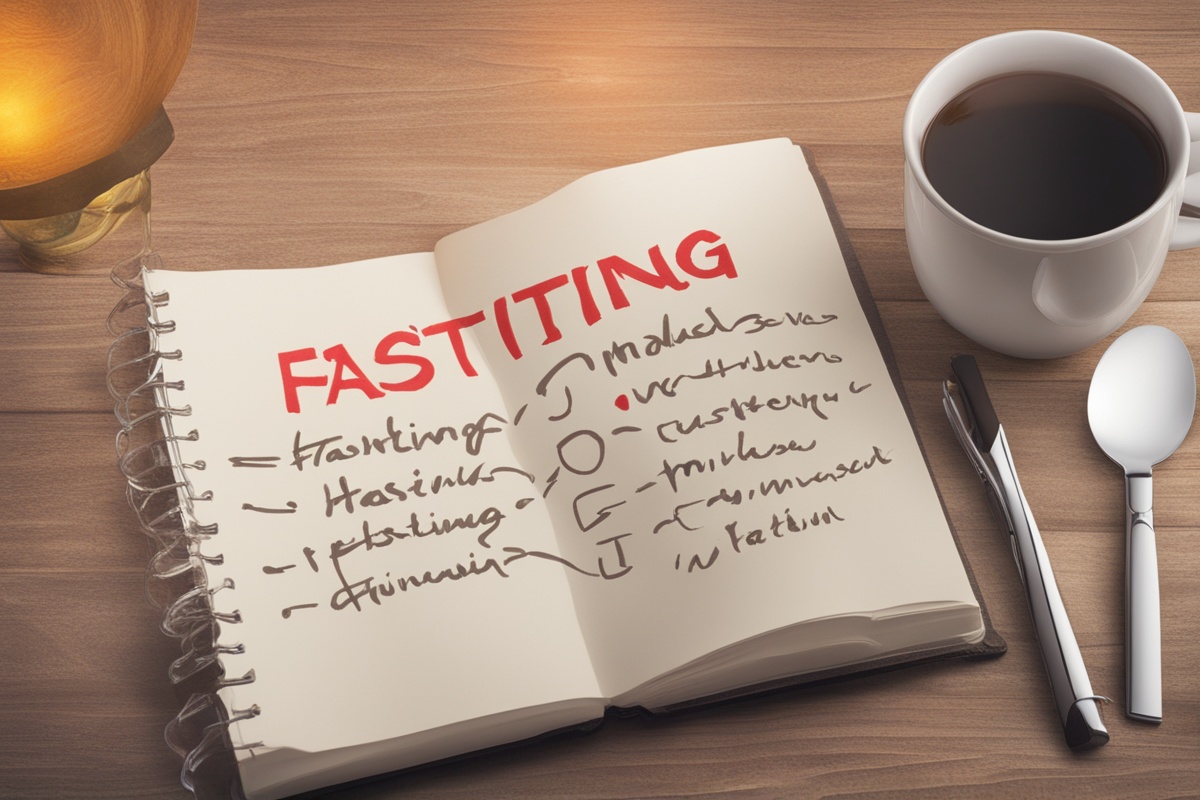Hey there, fellow health enthusiasts! If you’ve ever considered health fasting as a way to boost your wellness, lose weight, or simply reset your body, you’ve probably realized that it’s not just about skipping meals. fasting is as much a mental game as it is a physical one. Developing the right fasting mindset can be the difference between giving up after a day and embracing fasting as a sustainable lifestyle. In this deep dive, we’ll explore how to cultivate a strong mental approach to health fasting, backed by science and sprinkled with practical tips I’ve gathered from my own journey and research. Whether you’re new to intermittent fasting or a seasoned pro with extended fasts, let’s unpack how mindset shapes your success and transforms fasting into a powerful tool for health.
What Is the Fasting Mindset and Why Does It Matter?
The fasting mindset is all about approaching health fasting with intention, resilience, and a positive outlook. It’s not just about enduring hunger; it’s about reframing how you see food, discipline, and your body’s needs. Without the right mental framework, fasting can feel like a punishment rather than a pathway to better health. A strong mindset helps you push through cravings, manage social pressures, and stay committed to your goals. Research shows that psychological factors like self-efficacy—your belief in your ability to succeed—play a huge role in sticking to dietary changes, including fasting (Bandura, 1997). So, building mental fortitude isn’t just fluff; it’s a cornerstone of fasting success.
The Science Behind Fasting and Mental Health
Let’s geek out for a minute on how health fasting impacts your brain. Fasting doesn’t just benefit your body; it can sharpen your mind and improve your mood—key components of a strong fasting mindset. Studies have found that intermittent fasting can increase levels of brain-derived neurotrophic factor (BDNF), a protein linked to improved cognitive function and reduced risk of depression (Mattson et al., 2018). Additionally, fasting triggers ketosis, where your body burns fat for fuel, producing ketones that may enhance mental clarity (Paoli et al., 2019). Ever heard of that “fasting high” some people talk about? That’s your brain thriving on this metabolic shift. Understanding these benefits can help you see hunger not as a foe, but as a sign your body and mind are adapting and healing.
Common Mental Challenges in Health Fasting
Let’s be real—fasting isn’t always a walk in the park. Even with the best intentions, mental hurdles can trip you up. I’ve been there, staring at a fridge full of snacks during a 16:8 intermittent fasting window, questioning my life choices. Some common challenges include:
- Hunger Pangs: Your stomach growling can feel like a personal attack, especially in the early days of fasting.
- Cravings: Your brain might fixate on that chocolate bar or pizza, making it hard to focus on anything else.
- Social Pressure: Friends and family might not get why you’re skipping brunch, leading to awkward “just eat something” comments.
- Self-Doubt: You might wonder if fasting for health is worth the effort or if you’re “doing it wrong.”
Recognizing these challenges is the first step. With the right fasting mindset, you can turn these obstacles into opportunities to grow stronger mentally and physically.
Practical Tips to Build a Resilient Fasting Mindset
Now that we’ve covered the “why” behind mindset, let’s get into the “how.” Building mental strength for health fasting doesn’t happen overnight, but with consistent effort, it becomes second nature. Here are some strategies that have worked for me and countless others:
- Set Clear Intentions: Before starting a fast, write down why you’re doing it. Is it for weight loss, better energy, or gut health? Having a purpose keeps you anchored when temptation strikes.
- Start Small: If you’re new to fasting, don’t jump into a 3-day water fast. Begin with a 12:12 schedule (12 hours fasting, 12 hours eating) and gradually build up to longer windows.
- Reframe Hunger:
- Distract Yourself: Keep busy during fasting windows with hobbies, work, or light exercise. An idle mind often wanders to food!
- Celebrate Wins: Did you complete your first 16-hour fast? Acknowledge it! Small victories build confidence and reinforce your fasting mindset.
These tips aren’t just random ideas—they’re rooted in behavioral psychology. Rewarding progress and starting small, for instance, align with habit-forming principles that make lifestyle changes stick (Lally et al., 2008).
How to Handle Setbacks Without Losing Motivation
Here’s a truth bomb: setbacks are inevitable with health fasting. Maybe you caved and ate during your fasting window, or life got hectic, and you abandoned your routine. I’ve been there, and it’s easy to spiral into guilt. But a strong fasting mindset means seeing slip-ups as learning moments, not failures. Research on dietary adherence suggests that self-compassion—being kind to yourself after a lapse—helps prevent giving up entirely (Neff & Pommier, 2013). So, if you “break” your fast, don’t beat yourself up. Reflect on what triggered it, adjust your approach, and get back on track. Maybe you need a shorter fasting window or better meal planning during eating periods. The key is to keep moving forward, not to aim for perfection.
Long-Term Benefits of a Strong Fasting Mindset
Once you’ve honed your mental approach to health fasting, the rewards extend far beyond a single fast. A resilient mindset turns fasting into a sustainable practice, not a fleeting diet trend. Over time, you might notice improved discipline in other areas of life, like work or fitness, because fasting teaches you delayed gratification and self-control. Plus, the physical benefits—like better insulin sensitivity and reduced inflammation—become more pronounced with consistency (de Cabo & Mattson, 2020). Personally, I’ve found that sticking to intermittent fasting has made me more mindful about what I eat even outside fasting windows. It’s a ripple effect: a strong mindset fuels better choices, which fuel better health.
In wrapping up, cultivating a fasting mindset is the secret sauce to making health fasting work for you. It’s not about willpower alone; it’s about shifting how you think about hunger, discipline, and your body’s incredible ability to adapt. By understanding the science behind fasting, tackling mental challenges head-on, and using practical strategies, you can transform fasting from a struggle into a source of empowerment. Remember, this journey is personal—what works for me might need tweaking for you. So, experiment, be patient with yourself, and celebrate every step forward. Here’s to unlocking the full potential of health fasting, one mindful fast at a time!
References
- Bandura, A. (1997). Self-efficacy: The exercise of control. W.H. Freeman.
- de Cabo, R., & Mattson, M. P. (2020). Effects of intermittent fasting on health, aging, and disease. New England Journal of Medicine, 381(26), 2541–2551.
- Lally, P., van Jaarsveld, C. H. M., Potts, H. W. W., & Wardle, J. (2008). How are habits formed: Modelling habit formation in the real world. European Journal of Social Psychology, 40(6), 998–1009.
- Mattson, M. P., Moehl, K., Ghena, N., Schmaedick, M., & Cheng, A. (2018). Intermittent metabolic switching, neuroplasticity and brain health. Nature Reviews Neuroscience, 19(2), 63–80.
- Mizushima, N., & Komatsu, M. (2011). Autophagy: Renovation of cells and tissues. Cell, 147(4), 728–741.
- Neff, K. D., & Pommier, E. (2013). The relationship between self-compassion and other-focused concern among college undergraduates, community adults, and practicing meditators. Self and Identity, 12(2), 160–176.






